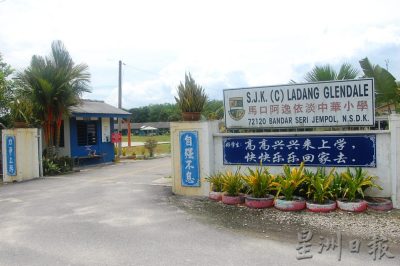
By Jamari Mohtar / Lim Ji Yi
The issue of the Philippines' claim on Sabah has always been the stumbling block for the betterment of bilateral ties between the two countries, which can be dated back as earliest as to the formation of Malaysia in 1963.
Despite the international consensus that Sabah is under the sovereignty of Malaysia, time after time, some Philippine politicians will play this political drama to fulfill their political agenda.
The latest one being the possible revival of the Office of North Borneo Affairs in the Philippine Department of Foreign Affairs. The Philippine Foreign Secretary Teodoro Locsin Jr said this office was dedicated to reclaim Sabah. Also, the Philippine House Committee on Foreign Affairs has approved the House Bill 6399 which would include Sabah in the map on the Philippine passports.
It is reported that this new bill would amend the Philippine Passport Act of 1996 that "aims to emphasis and insist on our victory on the West Philippine Sea over China in the International Arbitral Tribunal in the Hague, Netherlands, and our legal and historical rights over Sabah".
Well, what a repetition of previous baseless argument!
Another recent dispute involving both countries which has caught the attention of many is the diplomatic spat between Malaysian Foreign Minister Dato' Seri Hishammuddin Hussein and Locsin on Twitter.
On July 27 Locsin reprimanded the US Embassy in Manila after the latter tweeted about the distribution of hygiene kits to returning Filipino repatriated from Sabah, Malaysia, saying that "Sabah is not in Malaysia if you want to have anything to do with the Philippines".
This immediately elicited reaction from Hishammuddin on July 29 who said Locsin's remark was irresponsible and Malaysia will summon the Philippine Ambassador for clarification. He reiterated "Sabah is, and will always be, part of Malaysia".
This spat continued when Teodoro alleged the Philippines' claim on Sabah was a "historically factual statement" and that Malaysia tried to "derail the Arbitral Award". He even asserted that "no country can tell another what it can and cannot say about what the latter regards as rightfully its own" and would therefore summon the Malaysian ambassador.
The Philippines' claim on Sabah is based on the different interpretation of the 1878 Agreement between the then Sultan of Sulu and the British North Borneo Chartered Company (NBCC). The ambiguous term pajakan in the agreement has multiple meanings. The British interpretation of the term as "grant and cede" was inherited by Malaysia, which contradicted the Philippines' understanding of it as "lease" as interpreted by the Sulu Sultanate.
It is meaningless to continue the debate on the interpretation of the term as it is almost impossible to contextualize the term. To resolve the dispute, we have to consider the thoughts of the Sabahans, a concept of self-determination in international law.
In fact, seen from this perspective, it clearly justifies the invalidity of the Philippines' claim. Prior to the formation of Malaysia, the Malayan and British governments co-established the Cobbold Commission to survey the Sabah's public opinion regarding this matter. The result illustrated majority of the Sabahans were in favor with the formation of Malaysia.
Subsequently, a state-wide general election based on universal adult suffrage was held in December 1962. The main issue raised in the election was whether Sabah should as a state joined Malaysia. Out of a total of 119 seats, 113 were won by political parties which supported the formation of Malaysia, while the remaining six were won by independent candidates who were in favor with the proposal too.
This proved the Sabahans had fully exercised their right of self-determination and made their decision, which was to join Malaysia, in accordance with the United Nations (UN) Charter. However, the Philippines rejected the findings and results.
Despite the hardship faced, the then Malayan government had a negotiation with the Philippines and Indonesia during the Tripartite Summit Meetings in Manila, 1963.
The outcome of the meeting was the Manila Accord, in which a UN Commission was invited to ascertain the Sabahans' perception towards the formation of Malaysia. Also, the Philippines agreed to welcome the formation of Malaysia if the commission determined similar result as the previous Cobbold Commission.
Again, the result showed majority of the Sabahans wished to join Malaysia. Regrettably, in spite of its commitment in the Manila Accord, the Philippines had chosen to ignore the findings and continued the dispute which lasts until today.
There is no doubt international law is the guidebook to the resolution of territorial dispute and apparently, ancestral claim, or in this case, the Philippine "legal and historical rights over Sabah" does not carry much weight under international law.
This prompts us to determine what exactly is the rationale behind this seeming nonsense.
It might be a political maneuver to turn the Filipinos' focus away from the government's mismanagement in handling the COVID-19 pandemic. It could also be a display of its victory over China in the South China Sea Arbitration without directly calling out China in fear of the sanctions by this Asian giant. It might also be the prelude of the upcoming 2022 presidential election, in which the issue has been used to gain some political mileage.
After all, it is a political drama that is unlikely to end because it is a useful and effective tool to fulfill their political agenda.
However, the Philippines should note that this political drama is also a double-edged sword. While gaining benefits domestically, the Philippines ruins the bilateral ties with Malaysia and the unity of Asean as a whole.
Seeing the deteriorating geopolitics, in which a New Cold War between the US and China is likely to begin, we must recall the achievement of Asean in maintaining the peace and stability of this region during the Cold War.
Thus, the Philippines is urged to strengthen the unity of Asean together with Malaysia and other member states in this prologue to the New Cold War, rather than begetting this kind of unnecessary diplomatic spat which in the end leads to the disunity of Asean.
(Jamari Mohtar and Lim Ji Yi are part of the research team at EMIR Research, an independent think tank focused on strategic policy recommendations based on rigorous research.)
ADVERTISEMENT
ADVERTISEMENT


































